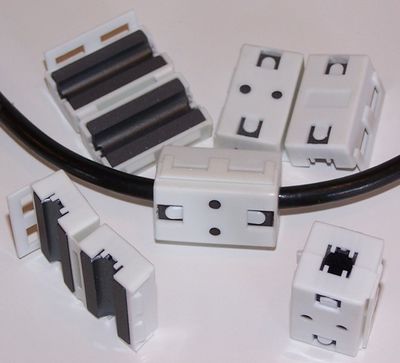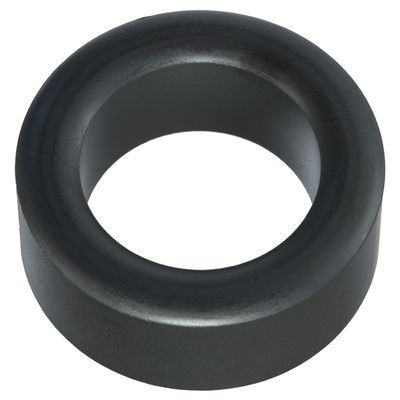Difference between revisions of "EMI suppression cores"
From Granite Devices Knowledge Wiki
| [checked revision] | [checked revision] |
| Line 28: | Line 28: | ||
==See also== | ==See also== | ||
*[[Wikipedia:Ferrite bead]] | *[[Wikipedia:Ferrite bead]] | ||
| + | [[Category:Troubleshooting]] | ||
| + | [[Category:Setup guides]] | ||
Revision as of 22:40, 18 April 2012
EMI suppression cores a.k.a. ferrite beads are an efficient way to reduce high frequency interference from wiring. Adding ferrute beads to signal & power wiring is recommended if signal reliability problems are encountered.
Selection
For motor control applications it is recommended to get low to medium frequency ferrite beads for maximum efficiency.
- Preferred types
- Core material designed for low to medium frequency bands (attenuation between 1-300 MHz)
- Large enough to fit cable multiple rounds through it
- Avoid
- Core material designed for high frequency bands (above 300 MHz)
- Inductor cores - will just add inductance and make things worse
- Iron powder cores
Where to find suitable cores
Most ferrite & iron powder cores look same. So if unsure about material properties, its most safe bet to purchase low to medium frequency beads from distributors such as:
- Digikey
- Mouser
- Farnell
Some popular ferrite bead brands:
- Laird-Signal Integrity Products
- Fair-Rite
Usage with VSD-E/XE drives
To solve an EMI problem its good to have selection of beads that can be tried on different cables. Most typical placement for beads:
- USB adapter
- CMD cable
- Encoder cable
- Motor output cable (all motor wires through core, multiple turns)
- HV DC power supply cable (+ and - leads through core, multiple turns)

